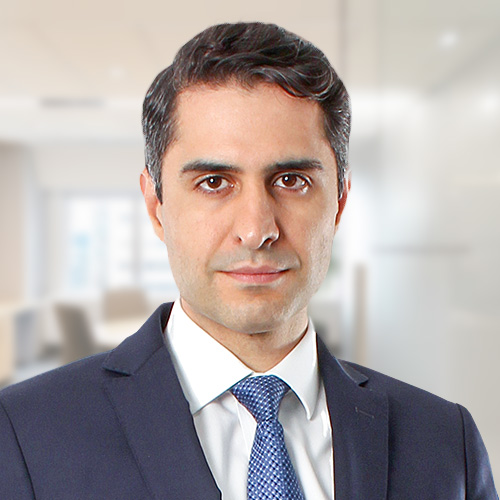Commentary
Making a splash
February 18, 2021
As a result of COVID-19 and the consequent travel restrictions, household consumption has increased in recent months while spending on leisure travel has declined. It is anticipated that spending on leisure travel will gradually return, however we doubt it will result in a decrease in at-home leisure spending. Due to the pandemic, a greater number of people are working from home, thus spending more time at home. The cocooning and healthy living trends should continue to support household spending in categories such as gardening, well-being, and home-related expenses. We believe that long-term growth trends in the swimming pool industry are looking bright. Fluidra, a company we initiated a few months ago, should benefit from strong market fundamentals.
Spanish-based Fluidra is one of the leading manufacturers of pool equipment. The company is the most vertically integrated player in that industry, with manufacturing and distribution activities for residential and commercial pools. Fluidra manufactures all components of a residential or commercial pool (i.e., pumps, heaters, valves, filters, cleaners, chemicals). In 2018, the company merged with Zodiac, another well-established pool equipment manufacturer. With that merger, Fluidra became the world’s largest pool equipment manufacturer with a market share of around 18%. The company generates 49% of its sales in Europe, 31% in North America and 20% in other international markets. For fiscal year 2020, consensus estimates are for sales of €1,475 million and an EBITDA of €304 million.
We expect demand to remain strong in the coming months, both in the aftermarket and new build areas. In addition, product innovation should continue to drive demand for pool products up. Last year was a good year for new builds, and based on pool builders, 2021 will be even stronger. Further, the commercial segment will be another driver, despite a relatively soft 2020. As the hospitality sector gradually recovers in 2021, we anticipate that the commercial market will experience renewed growth soon.
Market size
- The market size for pool equipment is €7.1 billion, growing at 4%-6% per annum. Growth will come from an increasing average ticket size, growth in the installed pool base as well as new build growth.
- The aftermarket represents about 73%, while new build is 21%.
- Regarding end markets, the residential pool market is 70%, the commercial pool market (hotels, spas, etc.) is 7%, pool water treatment is 14%, while other uses account for 9%.
- On average, the base of new pool installations grows by 325,000 units per annum.
Growth strategy
- Product development driven by innovation (e.g., energy efficiency products, Internet of Things, sustainability, etc.).
- Growing the distribution network by signing new distributors.
- Bolt-on acquisitions.
Strengths
- Fluidra is the dominant player in pool equipment with a market share of 18%.
- Following the merger with Zodiac, Fluidra is well positioned in all market segments.
- Widespread global coverage with a strong distribution network.
- Broad diversification by products, geographies, and distributors.
- Management has delivered the balance sheet over the past two years and the company is now in a stronger financial position.
- Commercial and industrial synergies.
- Ability to innovate.
Opportunities
- Environmental consideration and stronger demand for energy efficient products.
- The average basket value for pool equipment is expected to soar (e.g., variable speed pumps are 50% more expensive than single speed pumps).
- There is also a strong demand for better product functionality, such as connected devices (only 3% of existing pools are considered somewhat connected).
- Emergence of the middle class in developing countries would generate new demand. Global warming should support demand for pools.
- Housing activity and urbanization overall.
- The market is very fragmented and there are many small to medium companies that could be consolidated.
Risks
- There is some seasonality in the business skewed towards the first half of the year.
- Their products are discretionary by nature and could be impacted by a deterioration of housing activity, and by weaker disposable incomes.
- Competition.







